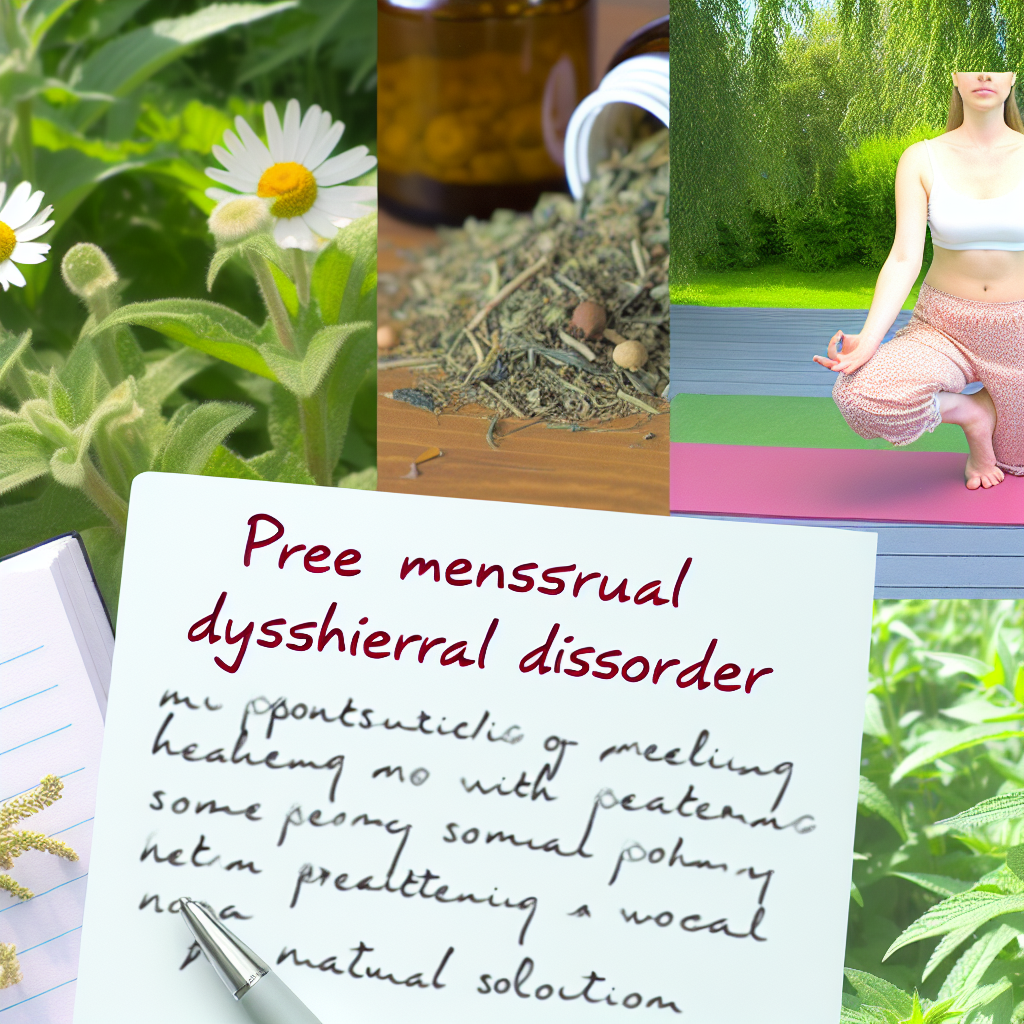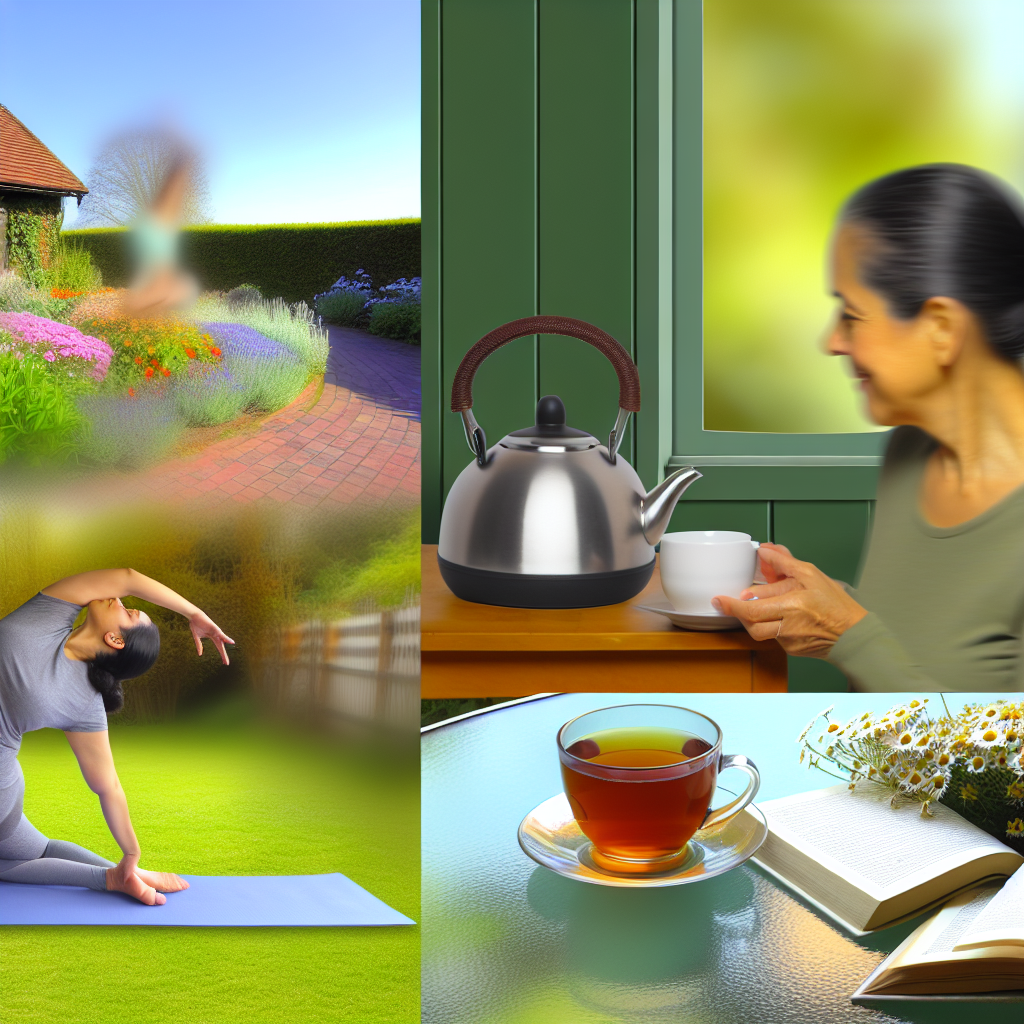Natural Solutions for PMDD Symptoms
Introduction:
For the refined and empowered modern muse who demands nothing less than optimal wellness, understanding how to treat health imbalances holistically is paramount. Among high-performing women who balance global travel, six-figure careers, and family responsibilities, health maintenance must be seamless, elegant, and effective.
One condition that affects many sophisticated women, often quietly and disruptively, is Premenstrual Dysphoric Disorder (PMDD)—a severe and often disabling form of premenstrual syndrome (PMS) that affects approximately 5–8% of menstruating women. It shares common symptoms with PMS—bloating, irritability, and breast tenderness—but magnifies them into intense mood swings, debilitating fatigue, anxiety, and even depression. These symptoms can significantly interrupt work performance, relationships, and a high-functioning lifestyle. For women who strive to live a luxurious, vibrant life, recurring hormonal instability is more than inconvenient—it’s an unacceptable disruption.
Traditional Western medicine often addresses PMDD through antidepressants, hormonal birth control, or GnRH agonists. While these may be effective for some, they come with side effects—weight gain, reduced libido, and mood shifts—that can hinder a comprehensive wellness routine.
In response, many women are turning to natural treatments for PMDD that are non-invasive, sustainable, and harmonize with the body’s rhythms. These include adaptogenic herbs, hormone-balancing rituals, strategic nutrition, acupuncture, Ayurveda, and personalized supplementation. With a focus on elegant efficacy, today’s health-savvy women use functional medicine to create natural PMDD management plans aligned with both lifestyle and science.
This shift is not only personal—it’s cultural. Women are reclaiming hormonal health as part of their holistic self-care. In this era of elevated wellness, managing PMDD symptoms naturally is not just a choice—it’s a defining lifestyle statement.
Natural Remedies Backed by Science
At moxygal.com, we’ve curated standout, science-supported options ideal for the modern woman’s wellness toolkit, focusing on effectiveness, luxury, and natural intelligence.
1. Chasteberry (Vitex agnus-castus)
This renowned botanical is among the most researched for balancing PMDD. A randomized, double-blind, placebo-controlled study in the British Medical Journal (BMJ) uncovered that those who supplemented with chasteberry experienced up to a 50% symptom reduction—particularly in mood swings, anger, and irritability. It works by modulating dopamine and supporting reduced prolactin levels, both key in regulating hormonal imbalances that trigger PMDD symptoms.
2. Calcium and Magnesium
Calcium has been shown to significantly reduce mood swings, fatigue, fluid retention, and pain commonly associated with PMDD. A study in the American Journal of Obstetrics and Gynecology (AJOG) highlighted that 1,200 mg of calcium daily dramatically improved emotional and physical symptoms. Magnesium complements this by promoting deeper sleep, supporting neurotransmitter regulation, and easing anxiety and muscle spasms—common PMS-related complaints.
3. Cognitive Behavioral Therapy (CBT)
Often overlooked in managing PMDD, CBT targets negative thought patterns associated with mood-related PMDD symptoms. A study in the Journal of Psychosomatic Obstetrics & Gynaecology showed that CBT delivered over six menstrual cycles significantly improved anxiety, emotional instability, and irritability. This therapy empowers women to restructure their response to emotional and mental stressors triggered by hormonal changes.
4. Omega-3 Fatty Acids
Omega-3s are essential for regulating mood and reducing inflammation. A study in the Reproductive Health Journal found that daily Omega-3 supplementation over two months significantly reduced both emotional and physical PMDD symptoms. Rich in EPA and DHA, Omega-3s support neurotransmitter function and hormonal balance.
5. Adaptogens like Ashwagandha and Rhodiola
Preventative and restorative, adaptogenic herbs help the body adapt to stress and rebalance hormones organically. Ashwagandha helps modulate cortisol levels, while Rhodiola supports cognitive clarity and mood stability. Clinical research in Phytomedicine supports their use to combat depression, fatigue, and stress-induced hormonal imbalance.
6. Acupuncture and Traditional Chinese Medicine (TCM)
Drawing from millennia of healing tradition, acupuncture enhances qi (vital life force), supports endocrine balance, and improves energy circulation. According to the Archives of Gynecology and Obstetrics, women with PMDD who received acupuncture reported relief from mood symptoms and cramping within just six weeks of treatment. These gentle yet effective practices provide a unique synergy with integrative care plans.
7. Diet & Lifestyle Optimization
What you eat and how you live greatly impact hormonal response. A review in Nutrition Research Reviews concluded that diets focused on low-glycemic foods and eliminating irritants like caffeine, alcohol, and refined sugar helped mitigate PMDD symptoms. A luxury wellness lifestyle may focus on plant-based gourmet dishes, superfood elixirs, and mocktails infused with herbal tonics to restore vibrancy without compromises.
Conclusion
For today’s modern woman striving for complete wellness, natural PMDD treatments offer an elegant solution to a disruptive condition. Leveraging the strength of mind-body strategies, precision supplementation, and evidence-backed holistic therapies, PMDD becomes less of an obstacle and more of an opportunity—to deepen self-awareness, build healthier routines, and empower cyclical living. Luxury is evolving, and true luxury prioritizes hormonal harmony, emotional resilience, and unapologetic self-care.
Concise Summary
PMDD, a severe form of PMS affecting 5–8% of menstruating women, can disrupt daily functioning and wellbeing. While pharmaceuticals offer help, growing numbers of women seek natural, science-backed solutions such as chasteberry, calcium, magnesium, CBT, omega-3s, adaptogenic herbs, acupuncture, and hormone-balancing lifestyle practices. These holistic approaches, tailored to meet the needs of high-functioning, wellness-conscious women, support hormonal stability without side effects. Combining ancient practices with modern science allows women to thrive throughout their cycles and reclaim hormonal vitality as a form of refined self-care.
References
– British Medical Journal: Vitex agnus-castus Study
– American Journal of Obstetrics and Gynecology: Calcium & PMDD
– Reproductive Health Journal: Omega-3 & PMDD
– Archives of Gynecology and Obstetrics: Acupuncture and PMDD
– Journal of Psychosomatic Obstetrics & Gynaecology: CBT for PMDD
– Phytomedicine Journal: Adaptogens and Mood
– Nutrition Research Reviews: Dietary Factors in PMS Management

Dominic E. is a passionate filmmaker navigating the exciting intersection of art and science. By day, he delves into the complexities of the human body as a full-time medical writer, meticulously translating intricate medical concepts into accessible and engaging narratives. By night, he explores the boundless realm of cinematic storytelling, crafting narratives that evoke emotion and challenge perspectives. Film Student and Full-time Medical Writer for ContentVendor.com




